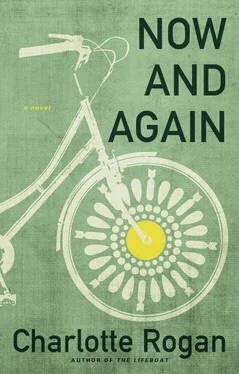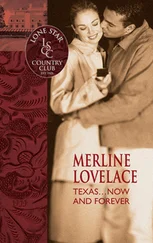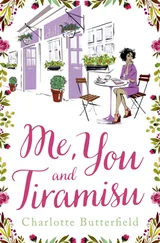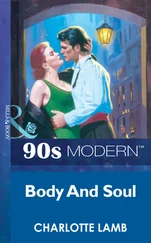“And what are you, the clothing police?” Valerie smiled and coughed out a hoarse little laugh.
Maggie immediately regretted her outburst. In an attempt to cover up her disapproval, she said, “It looks great on you, don’t get me wrong. I just wouldn’t have worn it to the office.”
“You wouldn’t have worn it at all,” said Valerie. “Frankly, you don’t have the body for it — but no offense.” She didn’t sound at all like Misty when she said it. Misty would have added, If you’ve got it, flaunt it. Or she would have said, Hell yeah, it’s inappropriate. I’m trying to shake things up a bit. It’s high time we had a little fun around here.
But Valerie wasn’t Misty. For the first time since quitting her job at the munitions plant, Maggie thought about her old life and wondered if she had made a mistake. Of course people make mistakes, she thought, and when she realized those were the very words Valerie had used that morning, she wondered if someone was using Valerie to send her a message the way Pastor Price said Jesus sometimes did.
Just before she left for the day, Maggie tried to patch things up with Valerie. “I’ll walk out with you,” she said. “Will has a game this evening, so I can’t stay late.”
The two women gathered up their things, but just as they were going out the door, Valerie said she had forgotten something. “You go on. I’d forget my head if it wasn’t screwed on.”
“Okay, see you tomorrow,” said Maggie, but a niggling suspicion made her loiter in a dark elbow of the hallway to see what Valerie would do. Instead of retrieving some forgotten item, Valerie took a piece of paper from her purse and tucked it into DC’s locked bank of files before closing everything up again, hiding the key in her desk drawer, and breezing down the corridor in a whirl of efficiency and Shalimar perfume. Maggie followed quietly behind. It was only when she got to the parking lot that she discovered the reason for the charade. Valerie didn’t head toward her own parking space at all, but walked the entire length of the asphalt lot and got into a car that was waiting at the far end. Even though the car was too far away for Maggie to identify, she knew it belonged to DC. She should have known it all along.
Everybody has secrets, she thought. She found the idea both comforting and disturbing. It made her own transgressions less unusual, but it also suggested that if the law took an interest in a person — Tomás, for instance, but also Valerie or DC or even Maggie herself — it could probably find evidence that that person had done something wrong.
Valerie’s attitude toward Maggie changed after the blouse incident. She still snapped her gum and made jokes, but she no longer went out of her way to include Maggie in the gossip sessions she presided over during breaks. She no longer showed Maggie a new eye shadow color and said, “This would be perfect for you.” Being ostracized emphasized to Maggie that she wasn’t and couldn’t be on the side of things where Valerie and the others were, where gossiping and comparing notes on clothing and men provided satisfaction and where morality was elastic, if it came into things at all. She pretended not to notice when Valerie stood sternly under the fluorescent strip lights and watched Maggie walk past as if Maggie were the one with the see-through blouse, but it always made her feel self-conscious, just as she knew Valerie knew it would.
5.3 Maggie
Maggie sat at her desk and tried to appear busy, intermittently craning her neck to get a glimpse of a visiting group of representatives from the ACLU. When they filed into the conference room to get the badges she and Valerie had prepared, she asked, “Should we find out if there’s anything else they need?”
“We don’t want to make them too comfortable,” said Valerie, who seemed to view the visit as an unwelcome intrusion. “You don’t see DC this nervous very often.”
“Why is he nervous?” asked Maggie.
“It’s the ACLU! They only come sniffing around if they think there’s something to find.”
“Like innocent prisoners?” asked Maggie.
“Like overcrowding. Like lack of medical and dental care. Like exposure to hazardous substances.”
“What hazardous substances?”
“Lord if I know. I doubt there are any, but it’s the kind of thing they look for. I guess we should set out more cookies for them after all. Along with some of those yummy tarts.”
Maggie was grateful when a woman with disordered clothing and a large brooch pinned awkwardly to her breast stuck her head through the door and asked where the restroom was, giving Maggie an excuse to walk past the conference room, where the director was holding forth on the subject of “humane rehabilitation” and “market solutions to the overcrowding problem.”
“The visitor’s lounge is in another wing of the building, but you’re welcome to use the employees’,” she said. “I’ll warn you, though, it gets a bit stuffy in there.”
“Thank you, thank you,” said the woman, hoisting a large bag onto her shoulder and rubbing a fat pink cheek with a sweaty hand.
Maggie hurried before her down the corridor and said she didn’t mind waiting outside to lead her back again, but the woman took longer than expected, and by the time they returned to the conference room, the rest of the group had already gone off on their tour.
“Come with me,” said Maggie. “I’m sure we can catch up.”
The woman nodded and cast her eyes fearfully behind her. “This is a maximum security facility, is it?” she asked as they waited for a guard to open a locked gate for them.
Maggie told her it was.
“I thought so. The ACLU is on a tear about solitary confinement, so they’re visiting prisons where they suspect it’s in use. My specialty is federal. Nonviolent. Although solitary confinement is used there too — oh, I don’t like to think about it. Imagine being shut away by yourself for years. Decades, in some cases. It’s really too, too much to bear.”
“I don’t think they do that here,” said Maggie, not because she knew anything about it, but because the woman seemed as if she was about to cry. On an impulse, Maggie grabbed her arm, which caused the woman to fall against her, almost knocking her over.
“Don’t be so sure,” she said, recovering her balance. “It’s a shockingly common practice.”
“I’d have heard about it,” said Maggie.
“Don’t be so sure about that either. They count on people closing their eyes to things.”
The woman glanced up the hall and then down it as if she were checking for eavesdroppers before she took a tiny copy of the Constitution out of her pocket and said, “Take a look at this.” She pointed to a chunk of text and said, “See? Right there. It’s perfectly legal for people who have been convicted of a crime to be enslaved.”
“That can’t be right,” said Maggie.
“As I said, they count on people closing their eyes to things.”
Maggie doubted it was true that slavery was legal. If it was, wouldn’t there have been an outcry on Geraldo and Oprah, and wouldn’t people be marching in the street singing “Let My People Go”? She found the woman’s air of superiority irritating, but as soon as she thought the word “smug,” the woman’s face collapsed in doughy misery and tears welled in the corners of her eyes.
“What do you do for the ACLU?” asked Maggie in an attempt to change the subject.
“I’m not part of the ACLU — not really. A colleague invited me, so I came along. Oh, I give them a little money now and then, but I’m a prisoner advocate for a different group, a group called PATH, which stands for Patrick Henry. You studied him in school, I imagine: Give me liberty or give me death! Why doesn’t anyone believe that anymore? In any case, that’s what we’re committed to. Our mission is to free the wrongly incarcerated case by case, although sometimes I think we’re going about it the wrong way. And now I might have crossed the line, and I’m trying to figure out how to uncross it. It’s all terribly upsetting.”
Читать дальше












